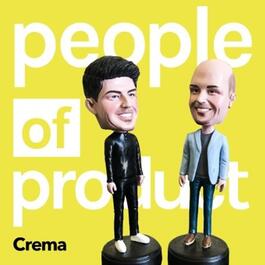
Description: Designers are coding, engineers are writing specs, and product managers are prototyping with tools that didn't exist 3 months ago. Julia Kanter, Senior Director of Product at Zillow, has watched her team's roles become more pixelated as the tectonic plates beneath the product landscape keep shifting. She explains why the need for product sense has become more acute when everyone can do a bit of everything. And why approaching this moment with curiosity, agency, and humility might be the smartest move of all. The new reality of product teams Julia's perspective comes from leading AI and experience teams at Zillow, where she's witnessed firsthand how rapidly evolving tools are reshaping what it means to build products. The traditional boundaries between roles are blurring in ways that require teams to develop new patterns of collaboration. "I think across tech it's clear that our roles are becoming more pixelated," Julia explains. "An engineer can be product minded or spin up their own spec, and a designer can code. That is great, but it does require practice in how to do that day to day and redefining your way of working with your partners." When everyone can prototype, what happens? The democratization of building tools has created unprecedented opportunities for rapid experimentation. Julia describes building a prototype at 40,000 feet during a flight, responding to feedback she'd received from real estate agents earlier that day. This kind of immediate iteration would have been impossible just a few years ago. But this accessibility comes with a caveat. While anyone can create a demo or proof of concept, getting something to production quality remains a significant challenge. The gap between "it works in the demo" and "it works reliably for thousands of users" is where product sense becomes crucial. The 3 work postures that still matter * Asking good questions - Good judgment starts with good questions! Stay curious. * Exercising judgment - When you can spin up a deep research report in a matter of minutes, discernment becomes imperative. What can be trusted? What should you use? What should you ignore entirely? * Taking agency - The tools are there, but they require someone willing to dive in without waiting for permission. High agency product people are experimenting, learning, and iterating faster than they ever have. 2026 predictions Julia predicts 2025 will be "the year of messy AI tech" where everyone is piloting and experimenting, with 2026 being when things start falling into place. This mirrors the pattern we saw with multimodal AI exploration in 2023 and broader implementation in 2024. For product teams, this means the current period is about building muscle memory around new tools and workflows rather than expecting immediate perfection. This is the worst that AI tools will ever be! TLDR; Having product sense is the differentiator When everyone has access to powerful building tools, the ability to know what to build becomes the key differentiator. Product sense - that combination of customer empathy, business understanding, and strategic thinking - becomes more acute when the barriers to creating are lower. The message is clear! Embrace the fluidity, be ready to develop new collaborative processes, and remember that all the tools in the world can't replace good judgment about what customers actually want. People of Product is brought to you by Crema - a design & technology consultancy This is a public episode. If you would like to discuss this with other subscribers or get access to bonus episodes, visit www.peopleofproduct.us
From "People of Product"


Comments
Add comment Feedback